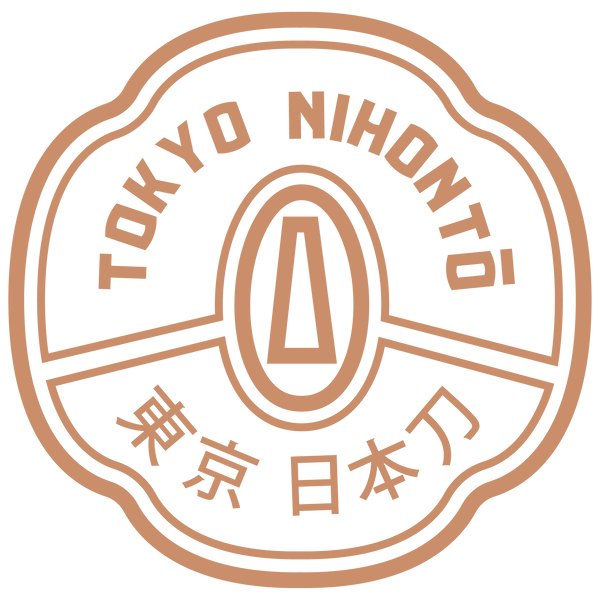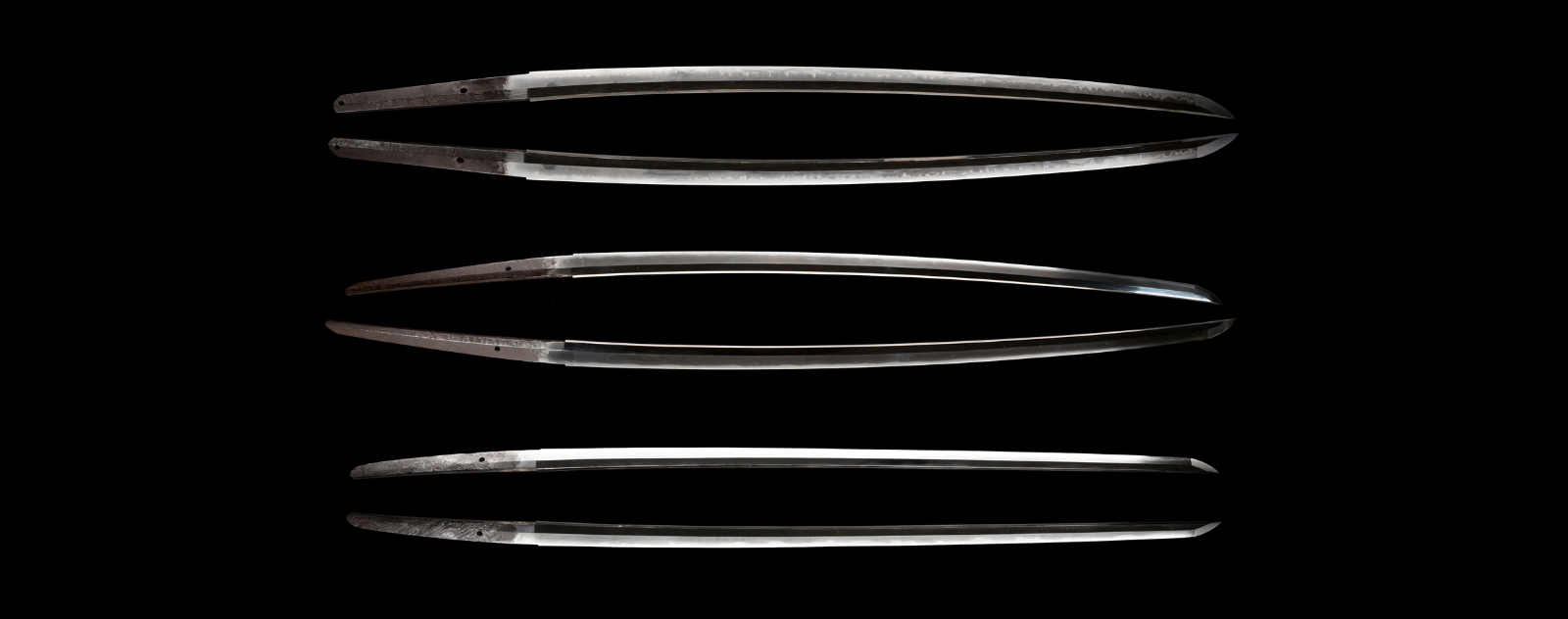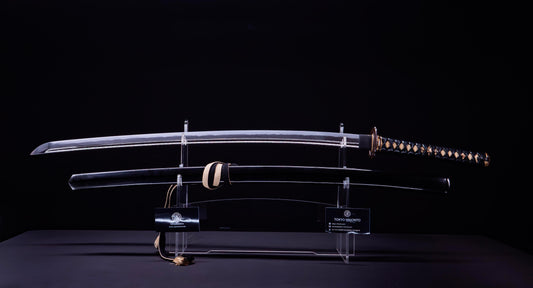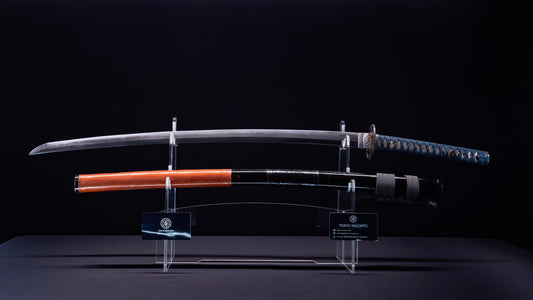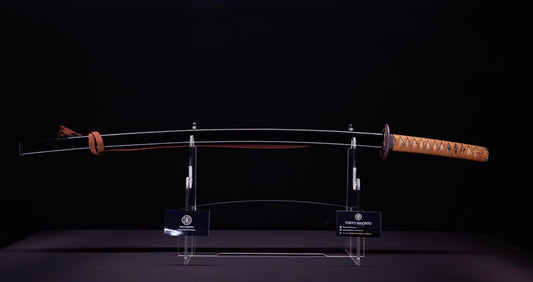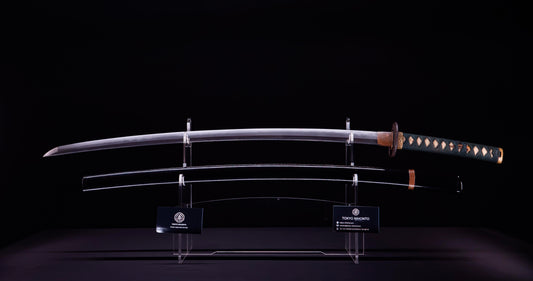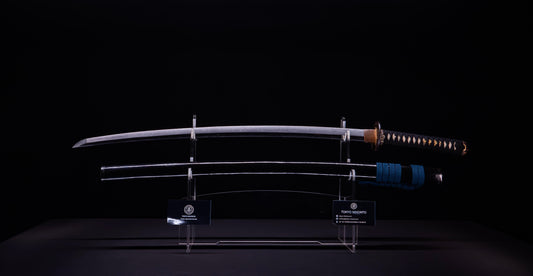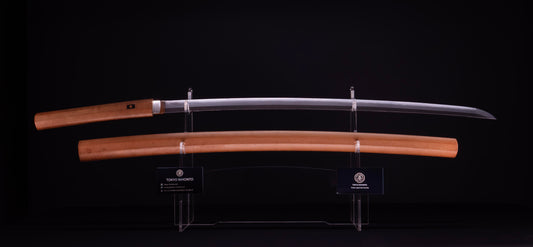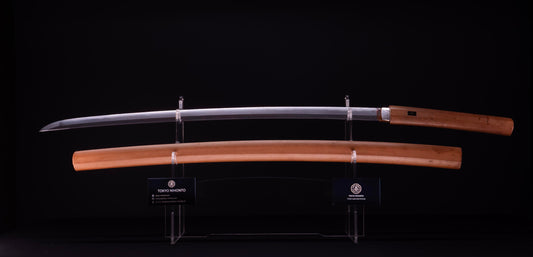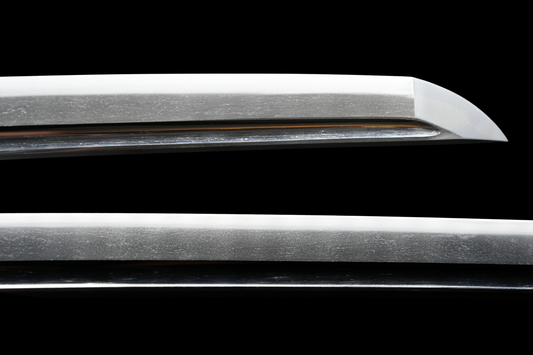Authentic Japanese Sword
NIHONTO FOR SALE
-
Antique Japanese Katana Sword signed Yoshimori
Vendor:Tokyo NihontoRegular price $4,400.00 USDRegular priceUnit price per -
Antique Japanese Katana Sword with Iron Sukashi & Koshirae
Vendor:Tokyo NihontoRegular price $2,600.00 USDRegular priceUnit price per -
Antique Japanaese Katana Sword signed Omi no Kami Fujiwara Tsuguhiro Katana - NBTHK Hozon
Vendor:Tokyo NihontoRegular price $5,200.00 USDRegular priceUnit price per -
Antique Japanese Katana Sword by Ishido School - NBTHK Hozon
Vendor:Tokyo NihontoRegular price $4,500.00 USDRegular priceUnit price per -
Antique Japanese Katana Sword from Late Muromachi, 66.6 cm
Vendor:Tokyo NihontoSOLDSOLD -
Antique Japanese Katana Sword by Kashu Katsuie (Hozon)
Vendor:Tokyo NihontoRegular price $3,300.00 USDRegular priceUnit price per
In the heart of tradition, amidst the vibrant cityscape of Tokyo, a vision was born - Tokyo Nihonto. As connoisseurs of the ancient art of Nihonto crafting, we decided to embark on a journey to the source of this revered tradition, to understand and imbibe its authenticity and spirit.
We delved deep into the land of the rising sun, meeting passionate swordsmiths, dedicated collectors, and potential partners. We visited museums holding centuries-old specimens, each telling a story of a time when the Nihonto was more than just a weapon, it was a symbol of honor and the soul of the samurai.
Exploring the mysterious beauty of these blades, we were inspired to bring this world-renowned craftsmanship to a global audience.
Thus, Tokyo Nihonto was launched - an exquisite blend of tradition and modernity, a tribute to the artistry of the past, and a beacon for the future of Nihonto craftsmanship. Our journey to Japan was more than an expedition, it was the cornerstone of a project that embodies the spirit, history, and art of the Nihonto.
Tokyo Nihonto, a testament to the art of the sword, was born.
Authentic Japanese Katana Swords
-
Antique Japanese Katana Sword signed Yoshimori
Regular price $4,400.00 USDRegular priceUnit price per -
Antique Japanese Katana Sword with Iron Sukashi & Koshirae
Regular price $2,600.00 USDRegular priceUnit price per -
Antique Japanaese Katana Sword signed Omi no Kami Fujiwara Tsuguhiro Katana - NBTHK Hozon
Regular price $5,200.00 USDRegular priceUnit price per
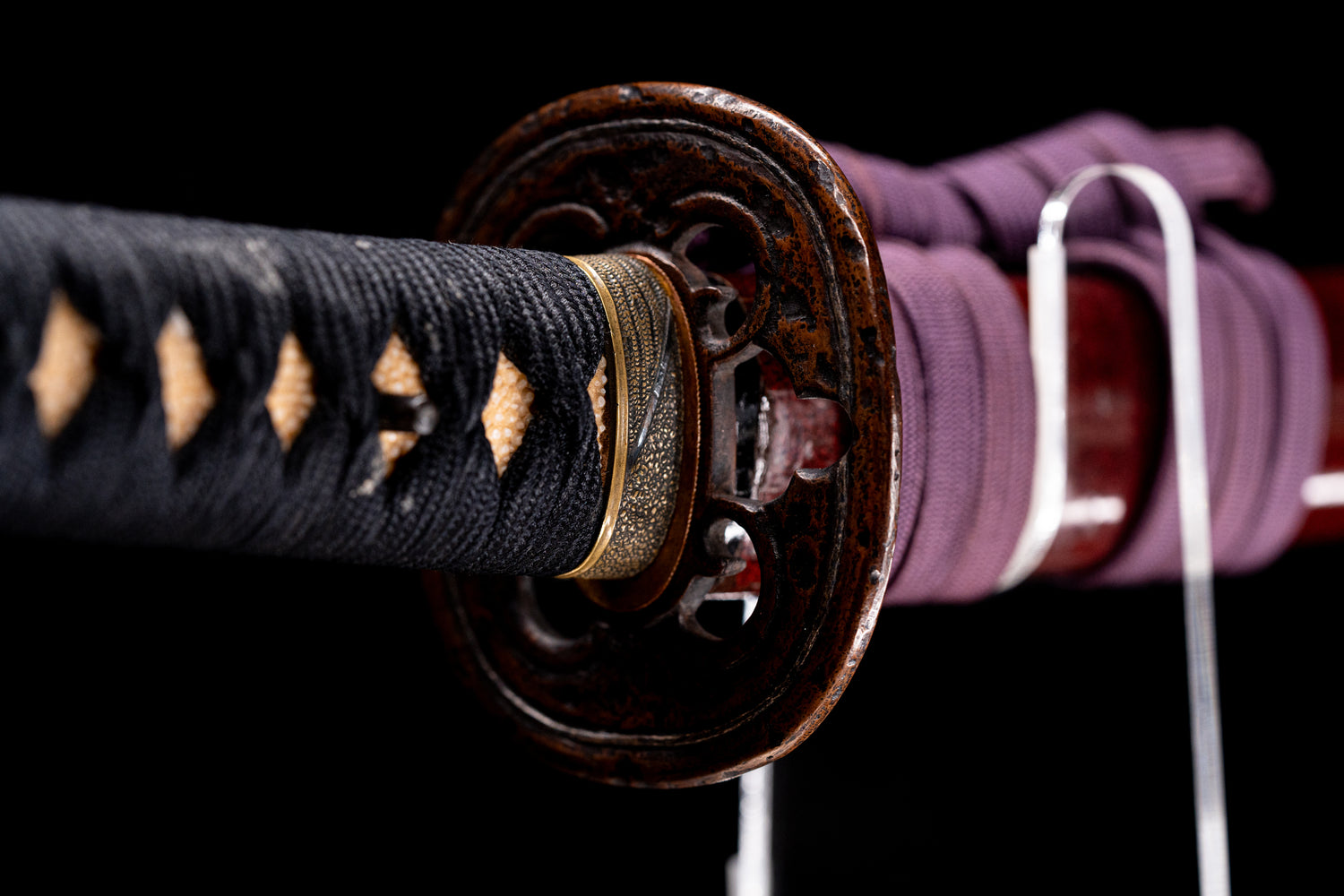
The most famous japanese sword
Authentic Japanese Sword Katana
Discover the elegance and tradition of authentic Japanese Katanas at Tokyo Nihonto. These iconic symbols of Japan’s heritage represent timeless artistry and craftsmanship.
Our collection features Katanas from ancient times to contemporary masterpieces by skilled swordsmiths. Each Katana showcases meticulous craftsmanship and centuries-old techniques. A high-quality Katana is more than an artifact; it is a piece of history. The blade length, typically around 70-73 cm, varies to suit different preferences, with perfect curvature, balance, and sharpness. Traditionally, the Katana is worn with the blade facing upwards, symbolizing readiness and honor.
At Tokyo Nihonto, we provide expert guidance to help you select the perfect Katana. Explore our collection today and bring home a piece of Japanese heritage with an authentic Katana from Tokyo Nihonto.
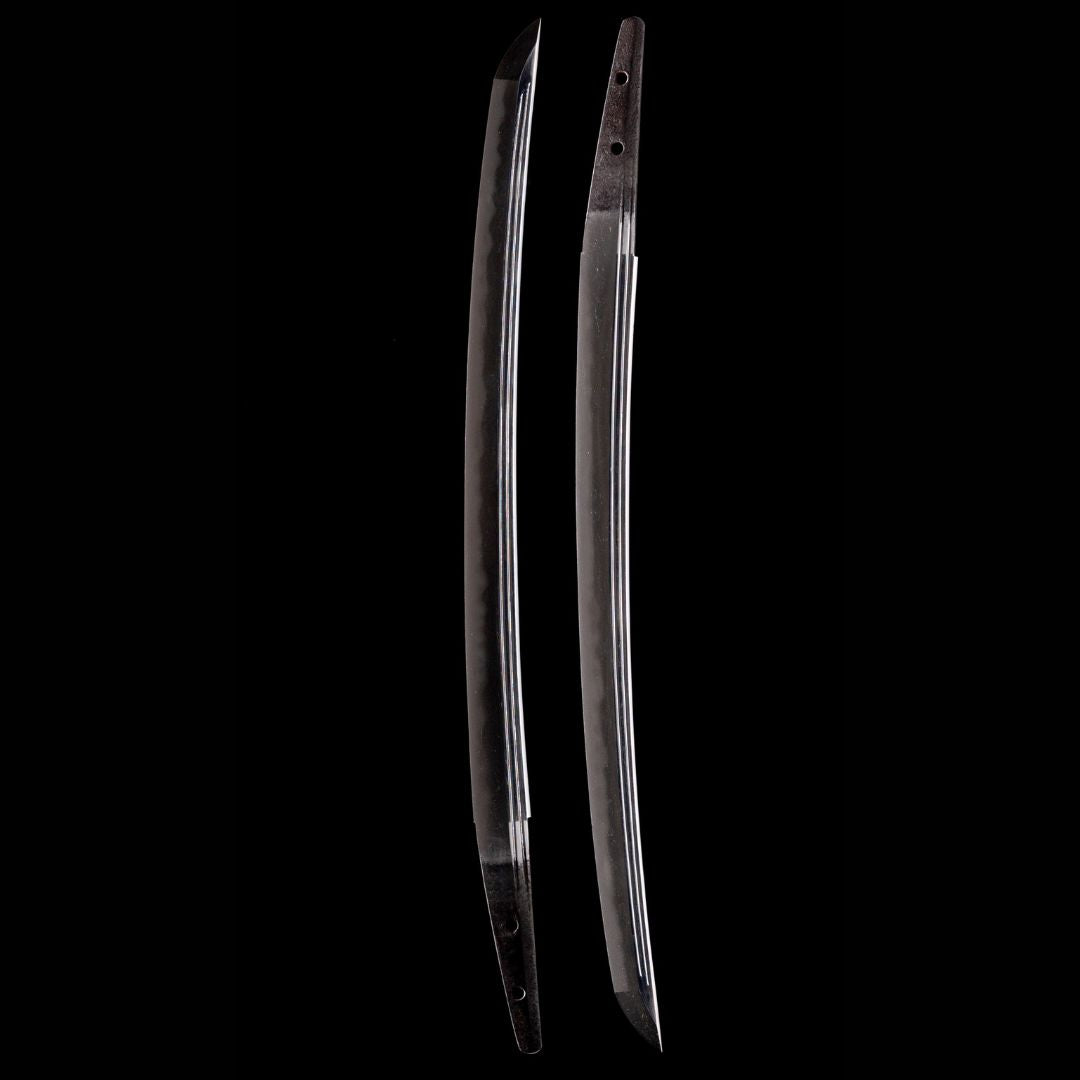
the short japanese sword
Authentic Japanese Sword Wakizashi
Discover the elegance and tradition of authentic Japanese Wakizashi at Tokyo Nihonto. These symbols of Japan’s heritage represent timeless artistry and craftsmanship.
Our collection features Wakizashi, typically 30-60 cm in length, crafted with meticulous skill. Worn on the waist alongside the Katana, the Wakizashi was used for close-quarters combat and self-protection inside castles.
During the Edo period (1603-1868 A.D.), Samurai were required to wear both swords, marking their status. At Tokyo Nihonto, we offer expert guidance to help you select the perfect Wakizashi. Explore our collection today and bring home a piece of Japanese heritage.
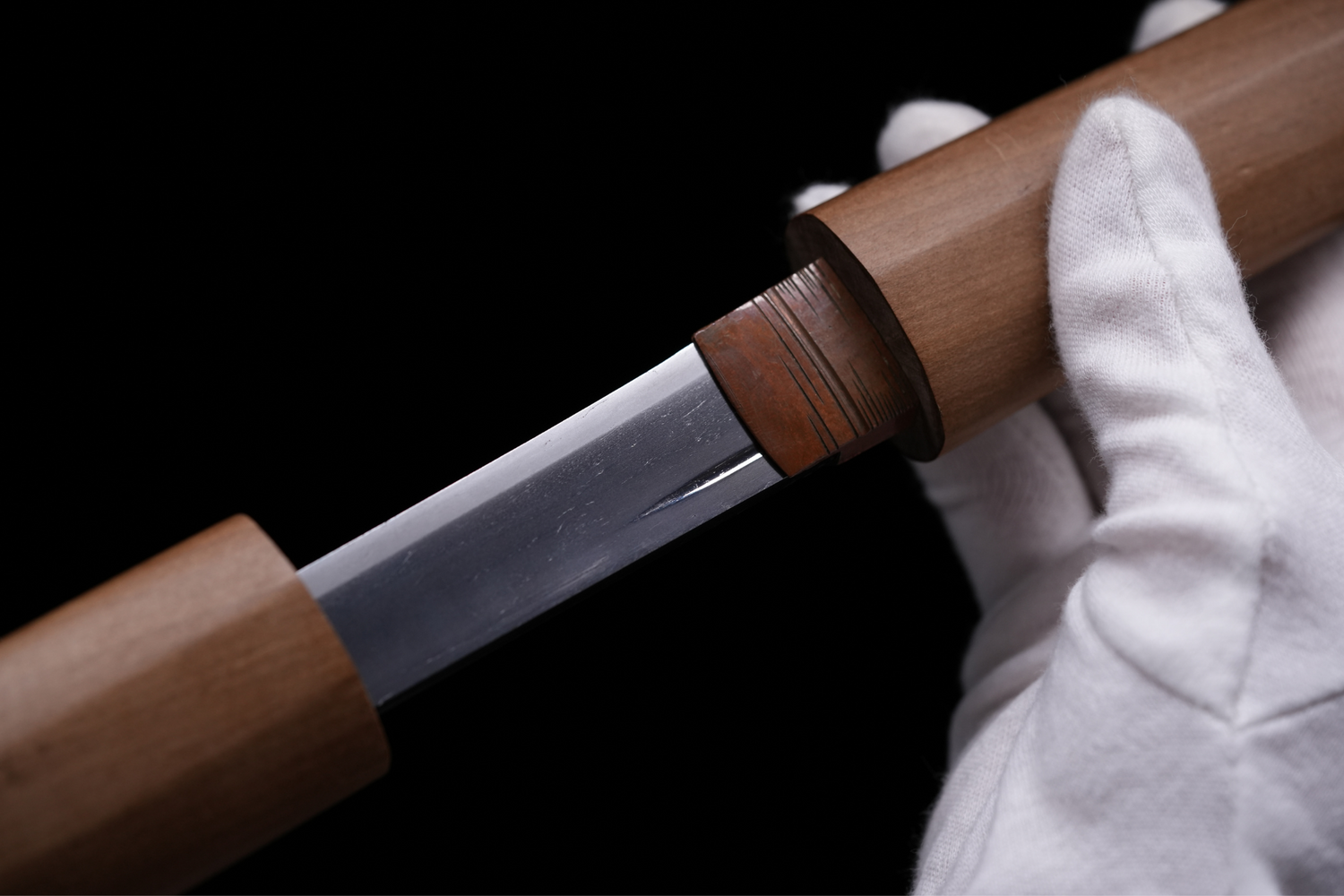
the smallest japanese sword
Authentic Japanese Sword Tanto
Discover the elegance and tradition of authentic Japanese Tanto at Tokyo Nihonto. These compact symbols of Japan’s heritage represent timeless artistry and craftsmanship.
Our collection features Tanto, typically under 30 cm in length, crafted with meticulous skill. Originally used by Samurai on horseback for close combat, the Tanto was aimed at unprotected areas of an enemy’s armor. Depending on how it was carried, it was called Hutokoro-Gatana (Stomach-Sword) or Koshi-Gatana (Waist-Sword).
Tanto are also traditional wedding gifts, believed to protect from evil. At Tokyo Nihonto, we offer expert guidance to help you select the perfect Tanto. Explore our collection today and bring home a piece of Japanese heritage.
About Japanese Sword
How much does a Real Japanese Sword Cost ?
The cost of an authentic Japanese sword can vary widely, depending on several factors. There are various types of traditional Japanese swords, such as the tanto (a short knife), wakizashi (a short sword), and the renowned katana (a long sword). The price range for these swords can start from a few hundred dollars and soar up to more than $50,000 or even higher.
A sword's value is influenced by its quality, the reputation of the swordsmith who crafted it, the presence and authenticity of certificates of provenance, the historical period in which it was made, and other unique attributes. For instance, a sword crafted by a famous swordsmith, accompanied by verifiable certification, and from a notable period in Japanese history will likely command a higher price.
In essence, while there are more affordable options available, a genuine, high-quality Japanese sword can be a significant investment due to its craftsmanship, heritage, and the intricate details associated with its creation.
Can you Buy an Authentic Sword in Japan ?
es, you can purchase an authentic Japanese sword in Japan. The country is renowned for its centuries-old tradition of sword-making, and there are many reputable dealers and craftsmen who offer genuine swords for sale. However, there are important regulations to note:
- Documentation: Every authentic Japanese sword comes with registration papers from the Japanese government, ensuring its authenticity. When purchasing, ensure that these documents are provided, as they certify the sword's legitimacy and historical relevance.
- Exporting: If you plan to take the sword outside of Japan, you'll need to adhere to specific procedures. Also, documentation or undergo an inspection to ensure you're not exporting national treasures.
- Laws & Regulations: Some countries have strict regulations or bans on importing weapons, including swords. Always check your home country's rules about importing swords before making a purchase.
- Reputation: When buying, always choose a reputable dealer or swordsmith to ensure the sword's authenticity. Many renowned craftsmen and shops in Japan specialize in genuine, traditional Japanese swords.
In summary, while you can indeed buy an authentic Japanese sword in Japan, it's crucial to be aware of the regulations in place and to deal with trustworthy sources to guarantee the genuineness of your purchase.
How to know if my Japanese Sword is Real ?
Determining the authenticity of a Japanese sword requires a combination of knowledge, observation, and sometimes, expert opinion. If you're wondering whether your Japanese sword is genuine, consider the following guidelines:
- Certificate: Authentic Japanese swords usually come with certificates that vouch for their legitimacy. Organizations like the NBTHK (Nihon Bijutsu Token Hozon Kyokai) and NTHK (Nihon Token Hozon Kai) are respected entities that issue certificates for genuine Japanese swords. Possession of a certificate from either of these organizations is a strong indicator of the sword's authenticity.
- Craftsmanship: Genuine Japanese swords exhibit meticulous craftsmanship. Examine the blade for fine, consistent grain patterns, known as "hada." The temper line, or "hamon," should be distinct and exquisitely executed.
- Signature: Many authentic swords have the swordsmith's signature, referred to as a "mei," engraved on the tang (the portion of the blade that extends into the handle). Validating this signature can provide insights into the sword's origins and creator.
- Materials: Traditional Japanese swords are fashioned using specialized types of steel, mainly "tamahagane." The blade should have a balanced and substantial feel, not appearing overly light or flimsy.
- Age Indicators: Observable wear patterns, oxidation, and patina can give clues about the sword's age. While age isn't the only determinant of authenticity, genuine older blades often possess specific aging traits that many replicas can't accurately imitate.
- Consult Experts: If you're uncertain, it's best to consult a specialist or expert in Japanese swords. Their expertise and deep knowledge can provide valuable insights, aiding in the confirmation of your sword's authenticity.
- Be Wary of Red Flags: Swords accompanied by exaggerated claims, suspiciously low prices, or devoid of any age indications might be replicas. Also, be cautious of blades that are overly glossy or have etched rather than traditionally crafted hamon.
